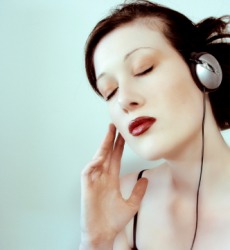How does music affect the brain? Music is said to influence the process of thinking and learning. If while working you listen to soothing songs, the music may help you think better, analyze matters faster, and work more efficiently. Music also promotes a more positive mood and attitude to its listeners and gives them an overall sense of motivation.

How Does Music Affect the Brain?
Studies have shown that music triggers notable improvements in a student’s academic skills when they listen to certain types of music while they are studying. Listening to feel-good music while performing a challenging task can make the activity seem a whole lot easier and more manageable to accomplish.
Music and Interpersonal Skills
Studies have also shown that music also has a remarkable effect on an individual’s interpersonal skills. Failures and mistakes that students typically encounter often lead to lower self confidence and lack of motivation to learn.
Music and Academics
Music can also help with academic success. Poor grades do not automatically reflect poor intelligence; they are often an outcome of lack of interest and lack of motivation in studying.
Exposure to music through lessons and other activities may help students overcome their mental block, so to speak. Music has been proven to be an effective tool in encouraging students to explore different fields. It helps boost the confidence of the students and helps them achieve more success in their endeavors.
Music not only gives students the increased capacity to feel confident about themselves but it also heightens self-trust and sharpens personal discipline.
The rhythm of music has also been shown in studies to aid in the studying of one of the most intimidating subjects for many students: math. Music stimulates the areas of the brain that are responsible for your thinking, planning, and analyzing thereby improving your organizational skills and making you more capable of handling challenging math problems.
Music Therapy
Understanding how does music affect the brain has been a topic of scientific research for years. It still is a very broad subject and scientists don't yet fully understand all the implications of music on the brain.
Although there is still not yet a full understanding of how does music affect the brain, modern and alternative treatments have began to embrace music's effects by making use of music therapy to treat depression, ADD patients, seizures, premature infancy, and insomnia.
Problems and other negative feelings such as anxiety, worrying, and depression create an uncomfortable and sometimes chaotic mood in the brain, thereby affecting its functioning. This is reflected in weaker reasoning ability and increased difficulty in the performance of tasks as a result of a reduction in the levels of serotonin.
Music and Serotonin Levels
Around 50 million brain cells are affected by serotonin levels. Music can cause an increase in serotonin levels thereby creating positive effects on the brain cells that control memory power, learning, mood, sleep functions, body temperature regulation mechanisms, s*xual desires, and other processes.
Music and Endorphins
Studies suggest music also helps in the release of endorphins that aid in speeding up the body’s healing process. It distracts the body from suffering and pain. As it diverts your attention from pain, it simultaneously triggers certain chemical activities that promote healing. Listening to soothing and pleasant music creates a positive impact on the mental and physical well-being of its listeners.
Music, Memory and Creativity
Music helps improve your memory. Research suggests that the silence in between two musical notes can trigger the neurons and brain cells which are required for sharp memory. Music from flute, sarod, and santoor, are ideal for the improvement of memory and concentration.
Music with stronger beats causes brain waves to resonate in such a way that is synch to the music. This brings about higher levels of alertness and concentration.
Music also enhances your creativity. Music has positive effects on the right side of your brain. Music affects the brain’s center which is responsible for creativity development.
If knowledge is considered to be food for thought, music is said to be the digestive system that is responsible for making sure that is integrated appropriately. So if you want to personally experience the effect of music on the brain, try visiting a quaint café and listen to its relaxing and pleasant music and then following it up with a visit to a club playing hardcore Hip Hop music. You will surely notice the effect!


 CAclubindia
CAclubindia
